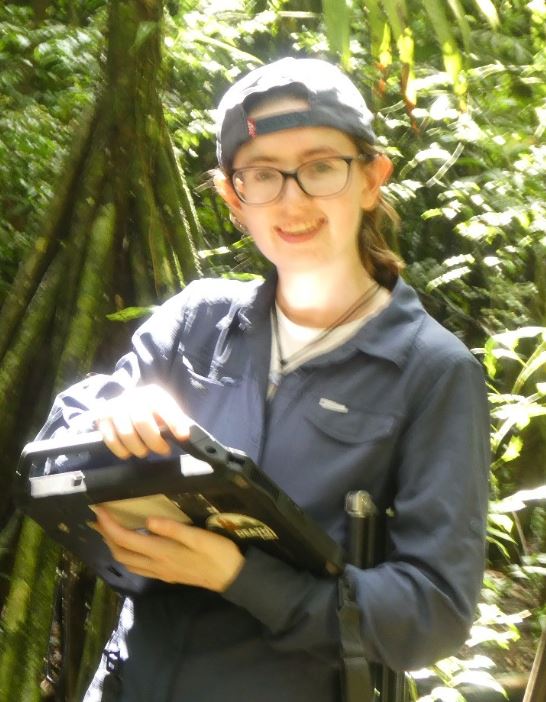Cohort 6
 Jessica O’Connor
Jessica O’Connor
- One Planet Researcher, based at Northumbria University Department of Engineering and Environment
- Email: jessica2.oconnor@northumbria.ac.uk
Project Title:
Understanding the legacy of Cenozoic climates to better inform future forest conservation and management strategies
Supervisory Team:
Dr. Matthew Pound & Dr. Ulrich Salzmann
Bio:
My appreciation for the natural world began at a very young age. Coming from a family that spent a lot of time outdoors it was easy to see the appeal of nature. I have always been interested in all things related to biology and geology. I am also a passionate communicator and was a copyeditor of my university’s student led environmental publication (Evergreen Trinity) where I got to contribute multiple articles. As well as that I was secretary of the Environmental Society where I got the opportunity to plan multiple events to promote interest in the natural world.
I completed my undergraduate thesis examining the role precipitation has on Fungal abundance in Trinity College Botanic Gardens. This project gave me a good understanding of the impacts climate can have and is having on our world. Throughout my time in Trinity College, I also completed a literature review examining the CODIT response of trees to Fungal invasion in the fossil record. My first official dive into the world of paleo and I haven’t left! Fieldwork is one of my favourite aspects of studying the natural world and just this summer I was lucky enough to join the DEATH Lab at the Smithsonian Tropical Research Institution in Panama for around 5 months where I got to join a great team of researchers looking into carbon storage in tropical forests using sonic technologies. It was the experience of a lifetime, and I cannot wait for the opportunities that await me!
Project overview:
The premise of this study is how the past is the key to the future. Conifers once had much wider distributions throughout the Cenozoic. It is thought due to the climate fluctuations throughout the Cenozoic they were forced to extinction in some areas and forced to contract their ranges in others.
The Cenozoic is a period in Earth’s history where temperatures similar to those that we are set to experience under future predicted climate change were observed. Making this time period an analogue to aid in our understanding of the consequences of climate change. The IPCC has predicted a 1.1°C to 6.4°C in the next century depending on how soon humans detach from the “business as usual model” which will have an impact on the functioning of the Earth’s systems.
There are 615 accepted species of conifers and a staggering 1/3 are at risk of extinction. Many species of conifers exist in small and isolated populations or occupying only a fraction of their original range.
The conifer genera that were selected for this study are amongst the most at risk, in some cases they are endemic, they experienced a range contraction throughout the Cenozoic, likely tied to climate and they appear in the fossil record. These genera are restricted to either Asia, America or both having once been present in Europe but going extinct during the glacial-interglacial period. Glaciations encroached on large areas of the northern hemisphere during the Pliocene and Pleistocene forcing plant populations into refugia. Refugia have a broad range of definitions but can be thought of as sites where the local climactic and environmental characteristics are favourable to the survival of particular taxa when regional and global climate may be unfavourable.
By understanding what climactic and environmental characteristics were ideal for the survival of these genera in the geological past we will be in a better position to predict how they may respond in the future. Which will allow us to implement adequate protection measures to ensure their survival.
Research Questions:
- How conifers with once widespread distributions responded to past climate change and how they will respond to future climate change?
- What environmental conditions are required for the survival and persistence of conifer genera?
Education:
BsC in Biological and Biomedical Sciences (Botany) from Trinity College Dublin
Skills:
Fieldwork, scientific communication and microscopy
Hobbies:
Hiking, running, playing guitar!








